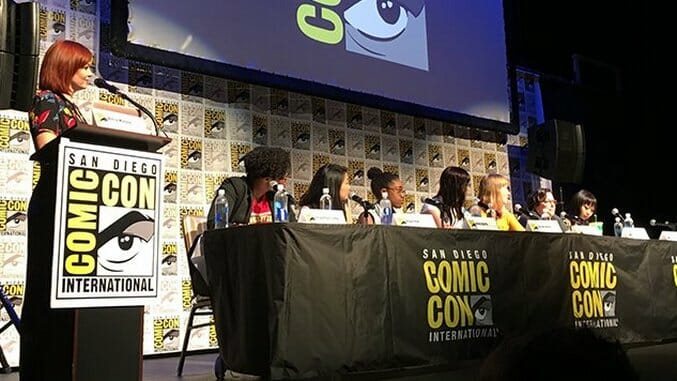Amplifying the Female Voices of “Film Twitter” at Comic-Con 2017
Photos: Dom Sinacola, Bryan Beasley
Most people aren’t aware of whatever loosely assembled accounts would constitute “Film Twitter,” but on Friday at the Horton Theater, Alicia Malone —host for Fandango and Filmstruck—drew a line between the feverish fandom of Comic-Con and the relatively unknown social media subsect.
“That’s how I feel about social media—we can connect with people and there are little groups within the wider banner of Twitter,” she said. “There are groups like Film Twitter…and Film Twitter is not a group per se, it’s just kind of a collective word for people who talk about film online and on Twitter—lots of hot takes happening, lots of great articles being shared.” Malone, who has over 50K followers, is one of the figureheads of Film Twitter, mostly led by critics, authors and a few industry folks.
Which of course means that “it can be a pretty male-dominated space,” Malone said, “so today we’re celebrating some of the great women who speak out and use the platform to talk about issues and to come together with other women.”
-

-

-

-

-

-

-

-

-

-

-

-

-

-

-

-

-

-

-

-

-

-

-

-

-

-

-

-

-

-

-

-

-

-

-

-

-

-

-

-

 (Left to right: Alicia Malone, Jacqueline Coley, Melissa Silverstein, Aisha Harris, Angie Han, Rachel Heine, Amy Nicholson, Jen Yamato)
(Left to right: Alicia Malone, Jacqueline Coley, Melissa Silverstein, Aisha Harris, Angie Han, Rachel Heine, Amy Nicholson, Jen Yamato)






































